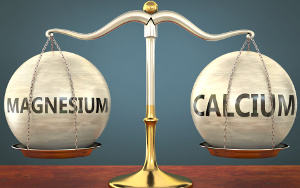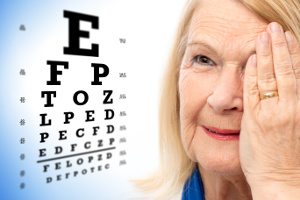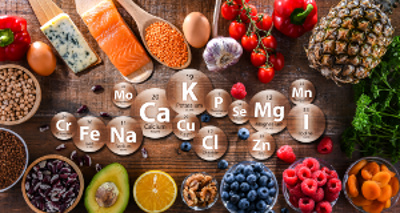afterLoad (456.22KB) (481μs)
afterInitialise (1.27MB) (61.04ms)
afterRoute (870.31KB) (26.24ms)
beforeRenderComponent com_tags (20.38KB) (274μs)
afterRenderComponent com_tags (1.36MB) (165ms)
afterDispatch (27.03KB) (9.58ms)
beforeRenderRawModule mod_articles_category (READ MORE...) (388.12KB) (24.45ms)
Before Access::preloadComponents (all components) (56.7KB) (5.4ms)
After Access::preloadComponents (all components) (103.05KB) (642μs)
Before Access::getAssetRules (id:8 name:com_content) (840B) (16μs)
After Access::getAssetRules (id:8 name:com_content) (7.05KB) (38μs)
afterRenderRawModule mod_articles_category (READ MORE...) (5.7KB) (135ms)
beforeRenderRawModule mod_tags_popular (Search) (4.81KB) (26μs)
afterRenderRawModule mod_tags_popular (Search) (3.1KB) (78.71ms)
beforeRenderRawModule mod_custom (Remember to download Heart Healthy Seniors) (816B) (47μs)
afterRenderRawModule mod_custom (Remember to download Heart Healthy Seniors) (4.86KB) (227μs)
beforeRenderRawModule mod_custom (Get additionel and more detailed knowledge ) (752B) (12μs)
afterRenderRawModule mod_custom (Get additionel and more detailed knowledge ) (1.67KB) (24μs)
beforeRenderRawModule mod_custom (BOOST YOUR IMMUNE DEFENSE) (608B) (8μs)
afterRenderRawModule mod_custom (BOOST YOUR IMMUNE DEFENSE) (928B) (20μs)
beforeRenderRawModule mod_custom (Are you taking supplements) (736B) (8μs)
afterRenderRawModule mod_custom (Are you taking supplements) (1.03KB) (17μs)
beforeRenderRawModule mod_custom (Antiaging) (720B) (8μs)
afterRenderRawModule mod_custom (Antiaging) (1.02KB) (16μs)
beforeRenderRawModule mod_custom (Exercise) (720B) (7μs)
afterRenderRawModule mod_custom (Exercise) (1.02KB) (16μs)
beforeRenderRawModule mod_custom (Check this before you buy a Q10 product) (752B) (7μs)
afterRenderRawModule mod_custom (Check this before you buy a Q10 product) (944B) (17μs)
beforeRenderRawModule mod_custom (Chronic fatigue tied Alan to his bed but Q10 capsules saved him:) (245.53KB) (5.91ms)
afterRenderRawModule mod_custom (Chronic fatigue tied Alan to his bed but Q10 capsules saved him:) (960B) (43μs)
beforeRenderModule mod_custom (Chronic fatigue tied Alan to his bed but Q10 capsules saved him:) (768B) (4μs)
afterRenderModule mod_custom (Chronic fatigue tied Alan to his bed but Q10 capsules saved him:) (1.3KB) (58μs)
beforeRenderRawModule mod_custom (Cholesterol-lowering without side effects:) (368B) (6.26ms)
afterRenderRawModule mod_custom (Cholesterol-lowering without side effects:) (2.19KB) (45μs)
beforeRenderModule mod_custom (Cholesterol-lowering without side effects:) (752B) (3μs)
afterRenderModule mod_custom (Cholesterol-lowering without side effects:) (1.28KB) (50μs)
beforeRenderModule mod_articles_category (READ MORE...) (21.32KB) (356μs)
afterRenderModule mod_articles_category (READ MORE...) (1.25KB) (51μs)
beforeRenderModule mod_tags_popular (Search) (5.17KB) (17μs)
afterRenderModule mod_tags_popular (Search) (1.27KB) (24μs)
beforeRenderModule mod_custom (Remember to download Heart Healthy Seniors) (1.17KB) (10μs)
afterRenderModule mod_custom (Remember to download Heart Healthy Seniors) (1.3KB) (21μs)
beforeRenderModule mod_custom (Get additionel and more detailed knowledge ) (368B) (8μs)
afterRenderModule mod_custom (Get additionel and more detailed knowledge ) (1.3KB) (19μs)
beforeRenderModule mod_custom (BOOST YOUR IMMUNE DEFENSE) (224B) (9μs)
afterRenderModule mod_custom (BOOST YOUR IMMUNE DEFENSE) (1.28KB) (19μs)
beforeRenderModule mod_custom (Are you taking supplements) (352B) (7μs)
afterRenderModule mod_custom (Are you taking supplements) (1.28KB) (19μs)
beforeRenderModule mod_custom (Antiaging) (336B) (8μs)
afterRenderModule mod_custom (Antiaging) (1.27KB) (17μs)
beforeRenderModule mod_custom (Exercise) (336B) (8μs)
afterRenderModule mod_custom (Exercise) (1.25KB) (17μs)
beforeRenderModule mod_custom (Check this before you buy a Q10 product) (352B) (8μs)
afterRenderModule mod_custom (Check this before you buy a Q10 product) (1.28KB) (18μs)
beforeRenderRawModule mod_menu (Main menu-US) (20.94KB) (3.65ms)
afterRenderRawModule mod_menu (Main menu-US) (152.66KB) (7.59ms)
beforeRenderModule mod_menu (Main menu-US) (720B) (5μs)
afterRenderModule mod_menu (Main menu-US) (4.36KB) (62μs)
beforeRenderRawModule mod_languages (Sprogskift) (3.44KB) (18μs)
afterRenderRawModule mod_languages (Sprogskift) (26.79KB) (7.61ms)
beforeRenderModule mod_languages (Sprogskift) (720B) (5μs)
afterRenderModule mod_languages (Sprogskift) (5.31KB) (20μs)
beforeRenderRawModule mod_finder () (6.34KB) (10μs)
afterRenderRawModule mod_finder () (214.16KB) (6.61ms)
beforeRenderModule mod_finder () (704B) (4μs)
afterRenderModule mod_finder () (5.79KB) (31μs)
beforeRenderRawModule mod_custom () (6.62KB) (130μs)
afterRenderRawModule mod_custom () (22.66KB) (2.81ms)
beforeRenderModule mod_custom () (704B) (5μs)
afterRenderModule mod_custom () (1.23KB) (47μs)
beforeRenderRawModule mod_menu (Main menu-US) (5.07KB) (94μs)
afterRenderRawModule mod_menu (Main menu-US) (5.8KB) (591μs)
beforeRenderModule mod_menu (Main menu-US) (720B) (4μs)
afterRenderModule mod_menu (Main menu-US) (1.25KB) (40μs)
beforeRenderRawModule mod_languages (Sprogskift Mobil) (912B) (16μs)
afterRenderRawModule mod_languages (Sprogskift Mobil) (3.89KB) (589μs)
beforeRenderModule mod_languages (Sprogskift Mobil) (720B) (3μs)
afterRenderModule mod_languages (Sprogskift Mobil) (1.27KB) (27μs)
beforeRenderRawModule mod_finder () (2.3KB) (8μs)
afterRenderRawModule mod_finder () (6.29KB) (6.57ms)
beforeRenderModule mod_finder () (704B) (5μs)
afterRenderModule mod_finder () (1.23KB) (45μs)
beforeRenderRawModule mod_custom () (8.66KB) (188μs)
afterRenderRawModule mod_custom () (904B) (139μs)
beforeRenderModule mod_custom () (704B) (3μs)
afterRenderModule mod_custom () (2.43KB) (24μs)
beforeRenderRawModule mod_custom () (688B) (2.15ms)
afterRenderRawModule mod_custom () (896B) (144μs)
beforeRenderModule mod_custom () (704B) (3μs)
afterRenderModule mod_custom () (2.71KB) (28μs)
afterRender (237.71KB) (14.72ms)
| 1 x afterRenderComponent com_tags (1.36MB) (28.75%) | 165.30ms |
| 1 x afterRenderRawModule mod_articles_category (READ MORE...) (5.7KB) (23.47%) | 134.94ms |
| 1 x afterRenderRawModule mod_tags_popular (Search) (3.1KB) (13.69%) | 78.71ms |
| 1 x afterInitialise (1.27MB) (10.61%) | 61.04ms |
| 1 x afterRoute (870.31KB) (4.56%) | 26.24ms |
| 1 x beforeRenderRawModule mod_articles_category (READ MORE...) (388.12KB) (4.25%) | 24.45ms |
| 1 x afterRender (237.71KB) (2.56%) | 14.72ms |
| 1 x afterDispatch (27.03KB) (1.67%) | 9.58ms |
| 1 x afterRenderRawModule mod_languages (Sprogskift) (26.79KB) (1.32%) | 7.61ms |
| 1 x afterRenderRawModule mod_menu (Main menu-US) (152.66KB) (1.32%) | 7.59ms |
| 1 x afterRenderRawModule mod_finder () (214.16KB) (1.15%) | 6.61ms |
| 1 x afterRenderRawModule mod_finder () (6.29KB) (1.14%) | 6.57ms |
| 1 x beforeRenderRawModule mod_custom (Cholesterol-lowering without side effects:) (368B) (1.09%) | 6.26ms |
| 1 x beforeRenderRawModule mod_custom (Chronic fatigue tied Alan to his bed but Q10 capsules saved him:) (245.53KB) (1.03%) | 5.91ms |
| 1 x Before Access::preloadComponents (all components) (56.7KB) (0.94%) | 5.40ms |
| 1 x beforeRenderRawModule mod_menu (Main menu-US) (20.94KB) (0.63%) | 3.65ms |
| 1 x afterRenderRawModule mod_custom () (22.66KB) (0.49%) | 2.81ms |
| 1 x beforeRenderRawModule mod_custom () (688B) (0.37%) | 2.15ms |
| 1 x After Access::preloadComponents (all components) (103.05KB) (0.11%) | 642μs |
| 1 x afterRenderRawModule mod_menu (Main menu-US) (5.8KB) (0.1%) | 591μs |
| 1 x afterRenderRawModule mod_languages (Sprogskift Mobil) (3.89KB) (0.1%) | 589μs |
| 1 x afterLoad (456.22KB) (0.08%) | 481μs |
| 1 x beforeRenderModule mod_articles_category (READ MORE...) (21.32KB) (0.06%) | 356μs |
| 1 x beforeRenderComponent com_tags (20.38KB) (0.05%) | 274μs |
| 1 x afterRenderRawModule mod_custom (Remember to download Heart Healthy Seniors) (4.86KB) (0.04%) | 227μs |
| 1 x beforeRenderRawModule mod_custom () (8.66KB) (0.03%) | 188μs |
| 1 x afterRenderRawModule mod_custom () (896B) (0.03%) | 144μs |
| 1 x afterRenderRawModule mod_custom () (904B) (0.02%) | 139μs |
| 1 x beforeRenderRawModule mod_custom () (6.62KB) (0.02%) | 130μs |
| 1 x beforeRenderRawModule mod_menu (Main menu-US) (5.07KB) (0.02%) | 94μs |
| 1 x afterRenderModule mod_menu (Main menu-US) (4.36KB) (0.01%) | 62μs |
| 1 x afterRenderModule mod_custom (Chronic fatigue tied Alan to his bed but Q10 capsules saved him:) (1.3KB) (0.01%) | 58μs |
| 1 x afterRenderModule mod_articles_category (READ MORE...) (1.25KB) (0.01%) | 51μs |
| 1 x afterRenderModule mod_custom (Cholesterol-lowering without side effects:) (1.28KB) (0.01%) | 50μs |
| 1 x beforeRenderRawModule mod_custom (Remember to download Heart Healthy Seniors) (816B) (0.01%) | 47μs |
| 1 x afterRenderModule mod_custom () (1.23KB) (0.01%) | 47μs |
| 1 x afterRenderRawModule mod_custom (Cholesterol-lowering without side effects:) (2.19KB) (0.01%) | 45μs |
| 1 x afterRenderModule mod_finder () (1.23KB) (0.01%) | 45μs |
| 1 x afterRenderRawModule mod_custom (Chronic fatigue tied Alan to his bed but Q10 capsules saved him:) (960B) (0.01%) | 43μs |
| 1 x afterRenderModule mod_menu (Main menu-US) (1.25KB) (0.01%) | 40μs |
| 1 x After Access::getAssetRules (id:8 name:com_content) (7.05KB) (0.01%) | 38μs |
| 1 x afterRenderModule mod_finder () (5.79KB) (0.01%) | 31μs |
| 1 x afterRenderModule mod_custom () (2.71KB) (0%) | 28μs |
| 1 x afterRenderModule mod_languages (Sprogskift Mobil) (1.27KB) (0%) | 27μs |
| 1 x beforeRenderRawModule mod_tags_popular (Search) (4.81KB) (0%) | 26μs |
| 1 x afterRenderRawModule mod_custom (Get additionel and more detailed knowledge ) (1.67KB) (0%) | 24μs |
| 1 x afterRenderModule mod_tags_popular (Search) (1.27KB) (0%) | 24μs |
| 1 x afterRenderModule mod_custom () (2.43KB) (0%) | 24μs |
| 1 x afterRenderModule mod_custom (Remember to download Heart Healthy Seniors) (1.3KB) (0%) | 21μs |
| 1 x afterRenderRawModule mod_custom (BOOST YOUR IMMUNE DEFENSE) (928B) (0%) | 20μs |
| 1 x afterRenderModule mod_languages (Sprogskift) (5.31KB) (0%) | 20μs |
| 1 x afterRenderModule mod_custom (Get additionel and more detailed knowledge ) (1.3KB) (0%) | 19μs |
| 1 x afterRenderModule mod_custom (BOOST YOUR IMMUNE DEFENSE) (1.28KB) (0%) | 19μs |
| 1 x afterRenderModule mod_custom (Are you taking supplements) (1.28KB) (0%) | 19μs |
| 1 x beforeRenderRawModule mod_languages (Sprogskift) (3.44KB) (0%) | 18μs |
| 1 x afterRenderModule mod_custom (Check this before you buy a Q10 product) (1.28KB) (0%) | 18μs |
| 1 x afterRenderRawModule mod_custom (Check this before you buy a Q10 product) (944B) (0%) | 17μs |
| 1 x afterRenderRawModule mod_custom (Are you taking supplements) (1.03KB) (0%) | 17μs |
| 1 x beforeRenderModule mod_tags_popular (Search) (5.17KB) (0%) | 17μs |
| 1 x afterRenderModule mod_custom (Antiaging) (1.27KB) (0%) | 17μs |
| 1 x afterRenderModule mod_custom (Exercise) (1.25KB) (0%) | 17μs |
| 1 x afterRenderRawModule mod_custom (Antiaging) (1.02KB) (0%) | 16μs |
| 1 x Before Access::getAssetRules (id:8 name:com_content) (840B) (0%) | 16μs |
| 1 x afterRenderRawModule mod_custom (Exercise) (1.02KB) (0%) | 16μs |
| 1 x beforeRenderRawModule mod_languages (Sprogskift Mobil) (912B) (0%) | 16μs |
| 1 x beforeRenderRawModule mod_custom (Get additionel and more detailed knowledge ) (752B) (0%) | 12μs |
| 3 x beforeRenderModule mod_custom () (704B) (0%) | 11μs |
| 1 x beforeRenderModule mod_custom (Remember to download Heart Healthy Seniors) (1.17KB) (0%) | 10μs |
| 1 x beforeRenderRawModule mod_finder () (6.34KB) (0%) | 10μs |
| 1 x beforeRenderModule mod_custom (BOOST YOUR IMMUNE DEFENSE) (224B) (0%) | 9μs |
| 2 x beforeRenderModule mod_menu (Main menu-US) (720B) (0%) | 9μs |
| 2 x beforeRenderModule mod_finder () (704B) (0%) | 9μs |
| 1 x beforeRenderRawModule mod_custom (Are you taking supplements) (736B) (0%) | 8μs |
| 1 x beforeRenderModule mod_custom (Exercise) (336B) (0%) | 8μs |
| 1 x beforeRenderModule mod_custom (Check this before you buy a Q10 product) (352B) (0%) | 8μs |
| 1 x beforeRenderRawModule mod_finder () (2.3KB) (0%) | 8μs |
| 1 x beforeRenderRawModule mod_custom (BOOST YOUR IMMUNE DEFENSE) (608B) (0%) | 8μs |
| 1 x beforeRenderRawModule mod_custom (Antiaging) (720B) (0%) | 8μs |
| 1 x beforeRenderModule mod_custom (Get additionel and more detailed knowledge ) (368B) (0%) | 8μs |
| 1 x beforeRenderModule mod_custom (Antiaging) (336B) (0%) | 8μs |
| 1 x beforeRenderRawModule mod_custom (Exercise) (720B) (0%) | 7μs |
| 1 x beforeRenderRawModule mod_custom (Check this before you buy a Q10 product) (752B) (0%) | 7μs |
| 1 x beforeRenderModule mod_custom (Are you taking supplements) (352B) (0%) | 7μs |
| 1 x beforeRenderModule mod_languages (Sprogskift) (720B) (0%) | 5μs |
| 1 x beforeRenderModule mod_custom (Chronic fatigue tied Alan to his bed but Q10 capsules saved him:) (768B) (0%) | 4μs |
| 1 x beforeRenderModule mod_custom (Cholesterol-lowering without side effects:) (752B) (0%) | 3μs |
| 1 x beforeRenderModule mod_languages (Sprogskift Mobil) (720B) (0%) | 3μs |
 Molybdenum is essential for liver detoxification and plays a key role in breaking down proteins, purines, and lipids. It also supports the synthesis of vitamin B12. Studies even suggest that a molybdenum deficiency or poor utilization of the nutrient increases the risk of gout, non-alcoholic fatty liver disease (NAFLD), and hepatocellular carcinoma, which is a type of liver cancer.
Molybdenum is essential for liver detoxification and plays a key role in breaking down proteins, purines, and lipids. It also supports the synthesis of vitamin B12. Studies even suggest that a molybdenum deficiency or poor utilization of the nutrient increases the risk of gout, non-alcoholic fatty liver disease (NAFLD), and hepatocellular carcinoma, which is a type of liver cancer.











 Fibromyalgia causes muscle pains, tiredness, sleep problems, and impaired quality of life. It is primarily women who are affected, and several studies have shown that diet plays a role in the development of the disease. The same goes for the the intake of calcium and magnesium, which must be balanced correctly. Magnesium deficiency is rather common and can increase the risk of metabolic disturbances and inflammation, which contributes to the development and symptoms of the disease. This was shown in a study of women that is published in Advances in Rheumatology. Patients suffering from fibromyalgia should also pay attention to Q10 deficiency and food intolerance.
Fibromyalgia causes muscle pains, tiredness, sleep problems, and impaired quality of life. It is primarily women who are affected, and several studies have shown that diet plays a role in the development of the disease. The same goes for the the intake of calcium and magnesium, which must be balanced correctly. Magnesium deficiency is rather common and can increase the risk of metabolic disturbances and inflammation, which contributes to the development and symptoms of the disease. This was shown in a study of women that is published in Advances in Rheumatology. Patients suffering from fibromyalgia should also pay attention to Q10 deficiency and food intolerance.
 The condition of our skin means a lot to our appearance and health, and being deficient in one or several nutrients can cause premature skin ageing. Also, things like poor wound healing, acne, herpes infections, yeast infections, eczema, psoriasis, and other skin disorders may occur. In a review article published in Medicina, scientists have looked at the role of vitamins A, C, E, D, and biotin plus omega-3 fatty acids in skin health. Studies suggest that selenium and zinc may also be important for healthy skin and anti-ageing. If you don’t get enough of these nutrients or if you simply have an increased need for them, you may consider taking a supplement.
The condition of our skin means a lot to our appearance and health, and being deficient in one or several nutrients can cause premature skin ageing. Also, things like poor wound healing, acne, herpes infections, yeast infections, eczema, psoriasis, and other skin disorders may occur. In a review article published in Medicina, scientists have looked at the role of vitamins A, C, E, D, and biotin plus omega-3 fatty acids in skin health. Studies suggest that selenium and zinc may also be important for healthy skin and anti-ageing. If you don’t get enough of these nutrients or if you simply have an increased need for them, you may consider taking a supplement.
 "After about one week of taking the Q10 supplement I could feel a huge difference," says 23-year old Alan Piccini, who has been suffering from extreme fatigue and muscle aches ever since he was a child.
"After about one week of taking the Q10 supplement I could feel a huge difference," says 23-year old Alan Piccini, who has been suffering from extreme fatigue and muscle aches ever since he was a child. “Taking capsules with co-enzyme Q10 has freed me of the severe side effects of my cholesterol lowering medicine,” Mrs Franken explains.
“Taking capsules with co-enzyme Q10 has freed me of the severe side effects of my cholesterol lowering medicine,” Mrs Franken explains.